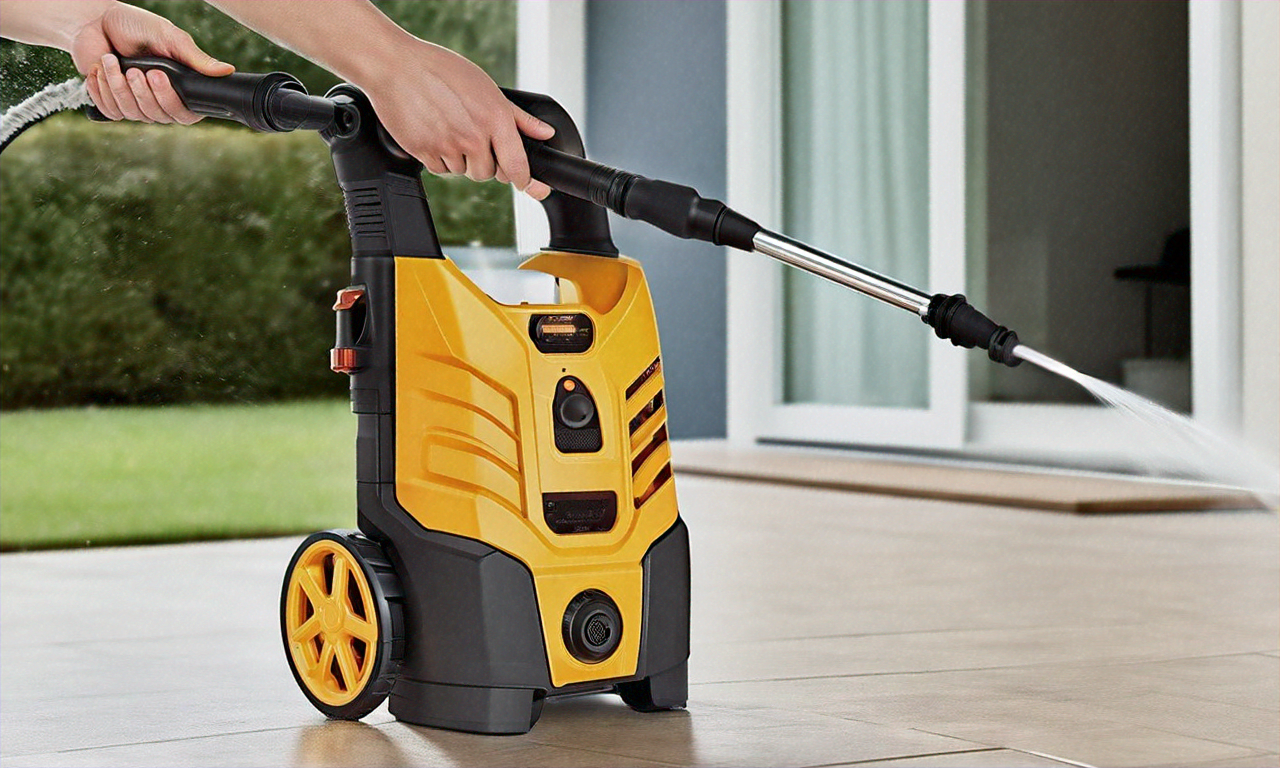Exploring Average Prices for Different Pressure Washers
Understanding the cost of pressure washers can help you make an informed purchasing decision. Whether you need a light-duty electric model for occasional home use or a heavy-duty gas-powered unit for commercial applications, prices vary significantly based on power, features, and brand. This guide breaks down what you can expect to pay across different categories and helps you navigate the market with confidence.

Pressure washers have become essential tools for maintaining clean outdoor spaces, from driveways and decks to vehicles and siding. The market offers a wide range of options, each with distinct pricing structures that reflect their capabilities and intended use. Making an informed purchase requires understanding the various factors that influence costs and the typical price ranges for different types of pressure washers.
What Factors Influence Pressure Washer Costs?
Several key elements determine the final price of a pressure washer. Power output, measured in pounds per square inch (PSI) and gallons per minute (GPM), significantly impacts cost. Higher PSI ratings typically command premium prices, as they deliver more cleaning force for tough stains and large surfaces. Build quality and materials also affect pricing, with commercial-grade units featuring durable pumps, reinforced frames, and corrosion-resistant components costing more than residential models.
Brand reputation plays a crucial role in pricing strategies. Established manufacturers often charge premium prices for their proven reliability and comprehensive warranty coverage. Additional features like adjustable pressure settings, multiple nozzle attachments, onboard detergent tanks, and electric start systems add to the overall cost but enhance user convenience and versatility.
How Much Do Electric Pressure Washers Cost?
Electric pressure washers represent the most affordable entry point into pressure washing. Basic models suitable for light-duty tasks like patio furniture cleaning and small vehicle washing typically range from $80 to $200. These units usually deliver 1,300 to 2,000 PSI with flow rates between 1.2 and 1.8 GPM.
Mid-range electric models, priced between $200 and $400, offer improved durability and higher pressure outputs up to 2,300 PSI. These units often include better pump systems, longer hoses, and additional accessories. Premium electric pressure washers can cost $400 to $600, featuring commercial-grade components, higher GPM ratings, and advanced control systems suitable for frequent use.
What Should You Expect to Pay for Gas Pressure Washers?
Gas-powered pressure washers command higher prices due to their superior power output and portability. Entry-level gas models typically start around $300 to $500, delivering 2,500 to 3,000 PSI with flow rates of 2.3 to 2.8 GPM. These units suit homeowners tackling medium-duty cleaning projects like driveway cleaning and fence restoration.
Mid-range gas pressure washers, priced between $500 and $1,000, offer increased durability and power outputs reaching 3,500 PSI. Professional-grade gas units can cost $1,000 to $3,000 or more, featuring heavy-duty engines, commercial pumps, and robust construction designed for daily use. These high-end models often include features like electric start, hour meters, and premium pump warranties.
Understanding Pressure Washer Price Guide Categories
Pressure washers fall into distinct price categories based on their intended use and target market. Light-duty models, typically under $300, suit occasional residential cleaning tasks and small surface areas. Medium-duty units, ranging from $300 to $800, handle regular homeowner needs including deck cleaning, vehicle washing, and moderate stain removal.
Heavy-duty residential models, priced between $800 and $1,500, offer commercial-grade performance for demanding home applications. Professional and commercial units start around $1,500 and can exceed $5,000, featuring industrial-strength components designed for continuous operation and harsh working conditions.
| Pressure Washer Type | Brand/Model Example | Price Range | PSI Rating | Key Features |
|---|---|---|---|---|
| Light Electric | Sun Joe SPX3000 | $150-$200 | 2,030 PSI | Dual detergent tanks, 5 nozzles |
| Heavy Electric | Greenworks GPW2700 | $300-$400 | 2,700 PSI | Steel frame, 25ft hose |
| Entry Gas | Simpson MSH3125 | $400-$500 | 3,200 PSI | Honda engine, axial pump |
| Mid-Range Gas | Generac 7143 | $600-$800 | 3,100 PSI | Electric start, triplex pump |
| Professional Gas | Simpson PS4240 | $1,200-$1,500 | 4,200 PSI | Commercial engine, 50ft hose |
Prices, rates, or cost estimates mentioned in this article are based on the latest available information but may change over time. Independent research is advised before making financial decisions.
How to Buy Pressure Washers Without Overspending
Smart shopping strategies can help you secure the best value for your pressure washer investment. Research your specific cleaning needs before shopping, as purchasing excessive power for light-duty tasks wastes money. Compare features across brands rather than focusing solely on price, as some manufacturers offer better value propositions through included accessories or extended warranties.
Timing your purchase around seasonal sales events like spring cleaning promotions or end-of-summer clearances can yield significant savings. Consider certified refurbished units from reputable dealers, which often provide substantial discounts while maintaining reliability. Online retailers frequently offer competitive pricing compared to traditional home improvement stores, but factor in shipping costs and local service availability.
Evaluating total cost of ownership helps prevent overspending on initial purchase while overlooking ongoing expenses. Consider maintenance requirements, replacement part availability, and fuel costs for gas models when calculating long-term value.
Pressure washer pricing reflects the diverse needs of consumers, from occasional light cleaning to demanding commercial applications. Understanding the factors that influence costs and typical price ranges for different categories enables informed decision-making. Whether choosing an affordable electric model for basic tasks or investing in a powerful gas unit for heavy-duty cleaning, matching your specific requirements with appropriate pricing categories ensures optimal value and performance for your cleaning projects.




